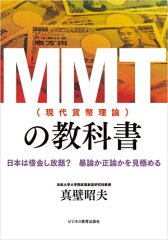
<prologue>
I started a blog called “The Baby Boomer Generation’s Miscellaneous Blog”(Dankai-sedai no garakutatyou:団塊世代の我楽多(がらくた)帳) in July 2018, about a year before I fully retired. More than six years have passed since then, and the number of articles has increased considerably.
So, in order to make them accessible to people who don’t understand Japanese, I decided to translate my past articles into English and publish them.
It may sound a bit exaggerated, but I would like to make this my life’s work.
It should be noted that haiku and waka (Japanese short fixed form poems) are quite difficult to translate into English, so some parts are written in Japanese.
If you are interested in haiku or waka and would like to know more, please read introductory or specialized books on haiku or waka written in English.
I also write many articles about the Japanese language. I would be happy if these inspire more people to want to learn Japanese.
my blog’s URL:団塊世代の我楽多(がらくた)帳 | 団塊世代が雑学や面白い話を発信しています
my X’s URL:団塊世代の我楽多帳(@historia49)さん / X
Recently, I have been hearing a lot about MMT (Modern Monetary Theory). In this issue, we would like to introduce this MMT.
1.What is MMT?
MMT (Modern Monetary Theory) is a heretical monetary theory that states, “As long as there is no inflation, there is no need to worry about budget deficits. The government of a country that issues its own currency can issue currency without limit, so there is no default and no matter how much the government debt grows, there is no problem.
A good example is Japan, where neither inflation nor rising interest rates have occurred despite its massive debt,” said State University of New York Professor Stephanie Kelton, an advocate of MMT.
Also, Koichi Hamada, a counselor in the Cabinet Office who was the economic brain of former Prime Minister Abe, explained to the Prime Minister on June 3, 2019, the modern financial theory that permits budget deficit expansion, saying, “Mainstream economists have come to doubt the theory that the government must always have a balanced budget.” He added, “It is a lie that the Ministry of Finance says the government should not borrow money. If the government borrows money, people’s lives may become richer. Professor Satoshi Fujii of Kyoto University, former counselor of the Cabinet Office, was also a proponent of MMT.
2.Why MMT is attracting attention
(1)Congressman Ocasio-Cortez
The MMT has recently gained sudden attention in Japan and the United States because Congresswoman Ocasio-Cortez, 29, a Democrat, who is attracting attention as the “youngest Congresswoman in history” in the United States, is an endorser of the MMT.
She has over 2.5 million followers on Twitter and 1.6 million followers on Instagram, and is said to have “more influence on social media than all the new Democratic congressmen elected in the 2018 election.
She is so popular that she is being called a future Democratic presidential candidate.
She opposed the “pay-as-you-go principle” proposed by the Democrats to prevent the deficit from rising, as she agrees with MMT. The “pay-as-you-go principle” is “a principle that requires the government to secure financial resources either through tax increases or commensurate spending cuts.
The “Green New Deal Policy” (a policy that seeks to create new jobs and economic growth through public investment in renewable energy and global warming countermeasures).
She said of financial resources, “For a nation, deficits are not a problem in the first place. The Green New Deal, like New Deal policies during the Great Depression, requires deficit spending”.
(2)Macroeconomics, the first textbook on MMT
The book is a 600-page textbook aimed at college students. According to the publisher, Macmillan, the first printing (the number of copies printed has not yet been disclosed) sold out within two months of the launch party in London, and more printings are planned.
However, it is doubtful that this book will be as universal as Paul Samuelson’s “Economics” textbook when we once studied economics in college.
3.Problems with MMT
However, it is obvious that if we promote this MMT that “the government can print as many bills as it wants,” we will eventually face irreversible “hyperinflation.
MMT proponents say, “If inflation occurs, we can stop it at that point.
However, I believe that this is not as easy to control as “a car can’t stop suddenly” (and there is a strong risk that it will become uncontrollable).
We absolutely need to avoid the nightmarish and ferocious hyperinflation of Germany, the defeated country after World War I. Prices in Germany “doubled a trillion times in about five years, from 1918 to 1923.
Japan, too, suffered from a ferocious inflation that could be called “quasi-hyperinflation” after the defeat in the Pacific War, and by 1955, when the inflation had subsided, prices had soared approximately 180 times higher than at the beginning of the war.
In the case of Japan’s local governments, there are examples such as Osaka Prefecture, which almost went into a state of real financial collapse as a result of profligate fiscal spending. Former Osaka Governor Toru Hashimoto, with a sense of crisis, has tried to rebuild the prefecture.
However, there is no oversight of the national government’s finances.
Will the MMT policy damage Japan’s credibility as a nation and lead to a further decline in the credit rating of Japanese government bonds? Even if the percentage of JGBs held by foreign investors is currently less than 10%, it is likely to increase in the future, and the risk of financial collapse cannot be said to be zero.
I believe that MMT is never the right monetary policy for Japan to take. What I expect from Finance Minister Aso is to firmly persuade Prime Minister Abe not to take the wrong monetary policy.
Former US Treasury Secretary Summers, former Fed Chair Janet Yellen, and current Fed Chair Jerome Powell are also critical of MMT.

